On September 26, 2024, Frances Widdowson attended a lecture by Travis Hay, an indigenous studies professor at Mount Royal University. The lecture was entitled “Diagnosing Denialism Within and Beyond MRU: The Architects of the Residential School System and Their Defenders”.
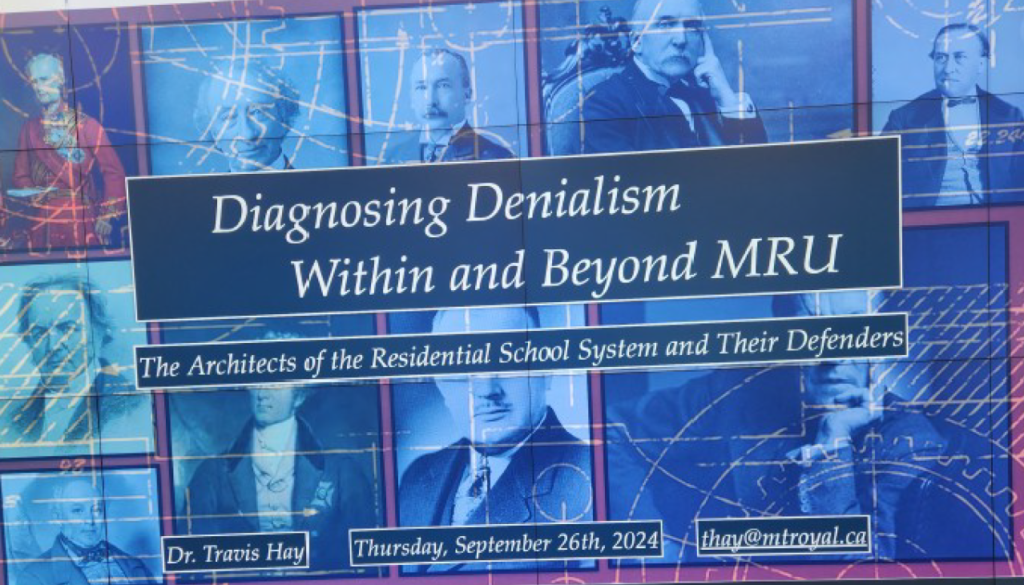
The four “denialists” identified were Don Smith (University of Calgary history professor emeritus), Matthew Hayday (University of Guelph history professor), Tom Flanagan (University of Calgary political science professor emeritus), and Frances Widdowson (wrongfully terminated former MRU political science professor).

A transcript and recording of Dr. Hay’s talk, as well as the Q and A that followed it, can be accessed here.
“Denialism” was defined by Hay as follows: “folks who claim that the word genocide is misapplied to either Canadian federal Indian policy or the residential school system” (Transcript, p. 3), “someone who claims that the residential school system had silver linings or positive impacts”, claims that “residential schools were good, [or] they had silver linings” (Transcript, p. 9), or “the claim that residential schools were justified, had silver linings or otherwise need to be reevaluated as non-genocidal” (Transcript, p. 25). These criteria were applied in the cases of Flanagan and Widdowson, but Hay also asserted that Smith and Hayday had engaged in “denialism” by defending certain “architects” of the residential school system (Egerton Ryerson in the case of Smith, and Hector-Louis Langevin with respect to Hayday).
In this talk, one of the pieces of evidence used for Hay’s claim that the residential schools were genocidal was a document written by Duncan Campbell Scott.
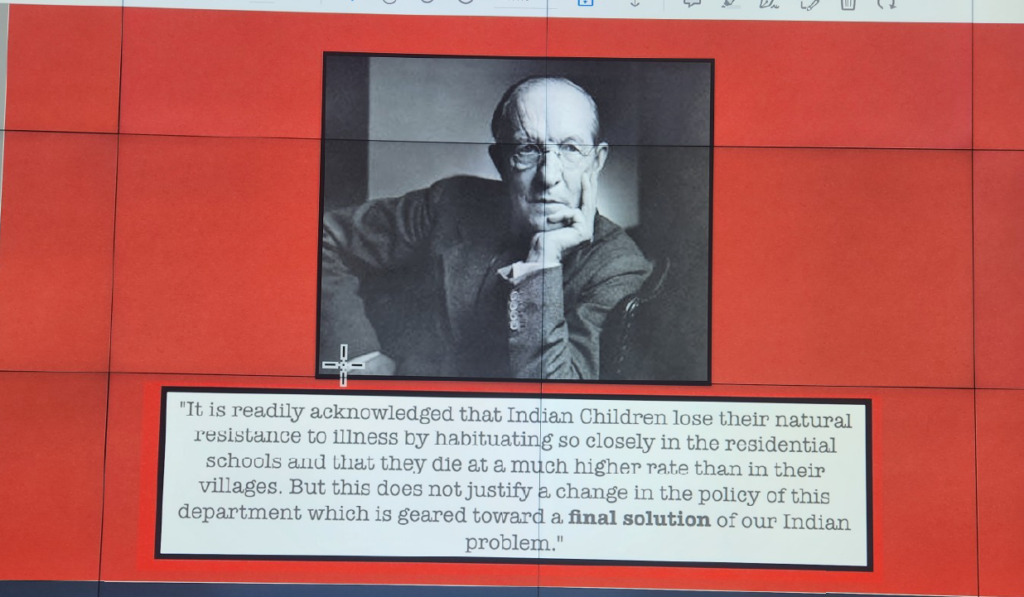
According to Dr. Hay, this document indicates the following:
“And of course that term final solution usually is most associated with the horrors of the Nazi occupation of Europe during World War Two but here we have a Canadian bureaucrat using that term to describe his approach and response to Bryce’s report in the context of Canadian federal Indian policy in the year 1913”.
This comment of Dr. Hay was explored further in a question from Dr. Scott Murray, MRU’s Chair of the Department of Humanities.

“Thank you professor Hay. You’re aware I’m sure about the controversial nature of pulling in a word or seeing a phrase like the final solution pulled out of the context where we know of it and placed in a different one. The remainder of that was ‘the final solution of our policy’ was I think how the rest of it…[Travis Hay interjects “toward the final solution of our Indian problem”] ‘of our indian problem’ – that’s right – so having pulled it out of that context and seeing it here what do you think was the intention of that phrase? What was their ‘final solution of our Indian problem’ as they understood it?”
In response, Hay stated the following:

The provenance and authenticity of the document used by Hay to draw parallels between the actions of Nazi Germany and the Canadian bureaucrat Duncan Campbell Scott, however, is questionable. This has been noted by J.R. Miller, the most prominent researcher on the residential schools (who was not even mentioned by Hay, even though he has asserted, in association with Don Smith, that the residential schools were not genocidal).
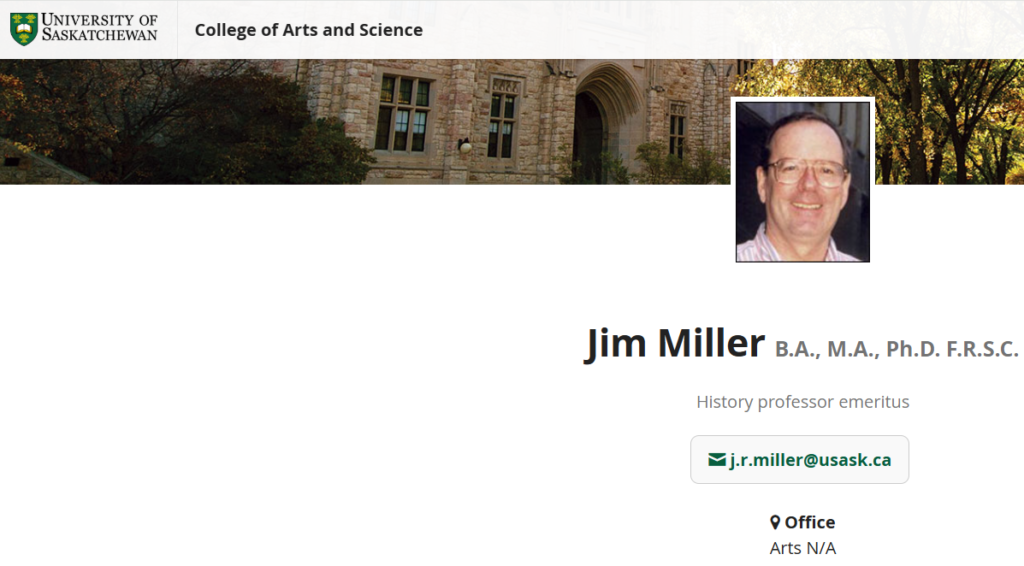
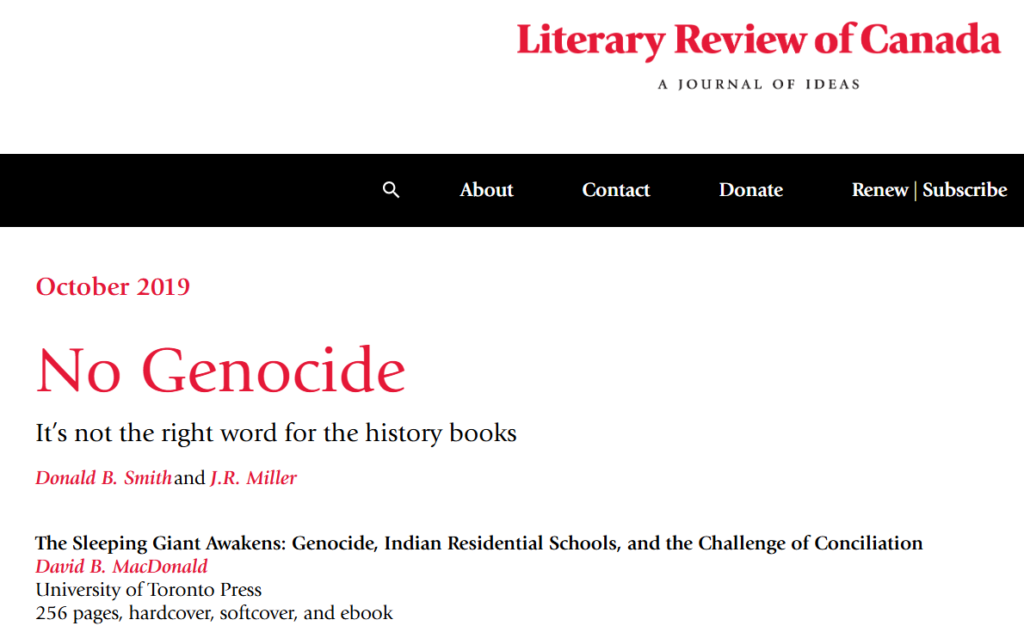
In his Review of Royally Wronged, Miller points out that “no one has been able to locate the original of this supposed letter of Scott’s in the Records of the Department of Indian Affairs in Library and Archives Canada [LAC] in spite of numerous efforts”. This letter, according to Miller, also was supposedly written in 1910, not 1913, as is asserted by Hay.


The researcher Nina Green also has done extensive research on this alleged letter written by Duncan Campbell Scott. This letter, according to Green, was claimed (by Kevin Annett) to have the following “untraceable citation”: “DIA Superintendent D.C. Scott to BC Indian Agent-General Major D. McKay, April 12, 1910” in the Summer 1999 issue of the American Indian Review.
Kevin Annett’s somewhat hysterical article from the Summer 1999 issue of the American Indian Review is posted below. This article has the title “‘The Final Solution of our Indian Problem’: Genocide and Native Residential Schools in Canada”.
Another indication of the likely apocryphal character of this document is the fact that Annett has not posted it with any of his other “Archival Documents from the Canadian Department of Indian Affairs (DIA)” that he has provided as evidence of “The Canadian Holocaust”. Considering the supposed importance of this document to Annett’s arguments about “genocide”, wouldn’t he have taken the time to feature it prominently?
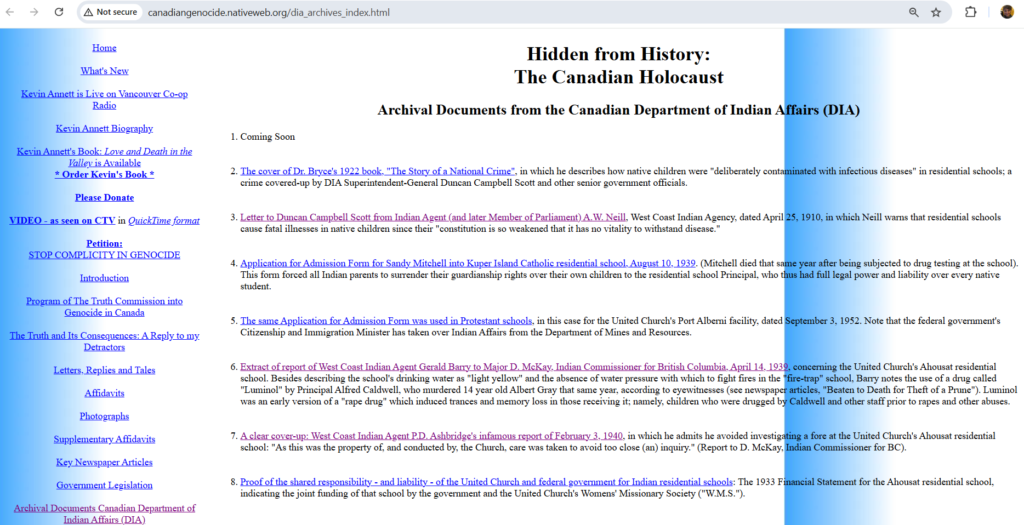
Does pointing out the suspicious character of this document, and thus calling into question one of the pieces of evidence used to claim that the residential schools were genocidal, constitute “residential school denialism”? Should this post be illegal, Kimberly Murray and Leah Gazan? What does Dr. Hay think?
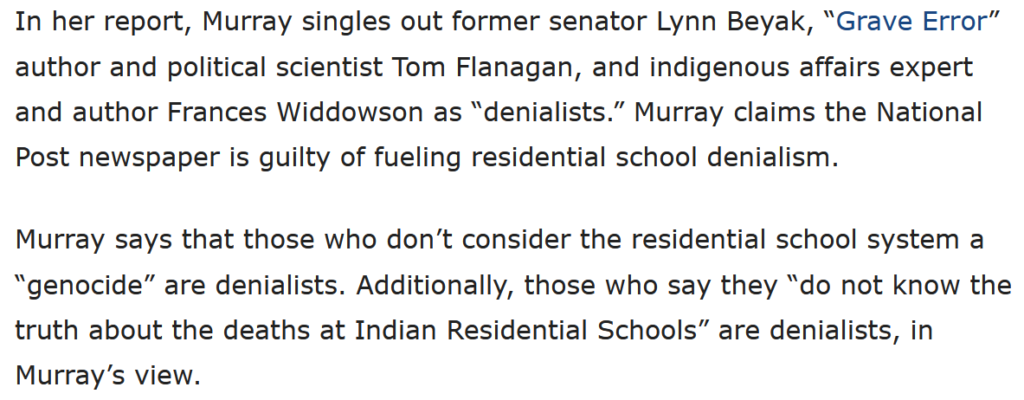
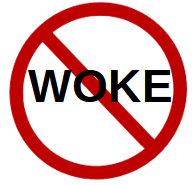
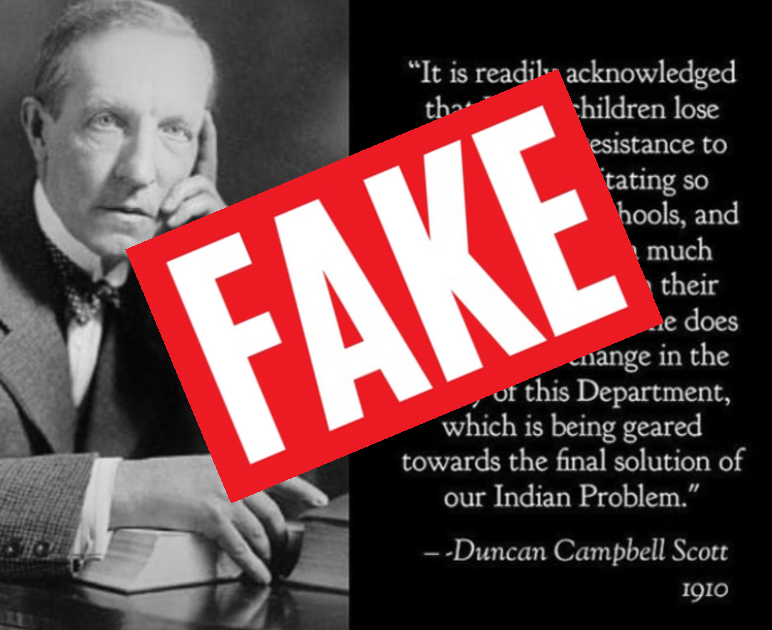
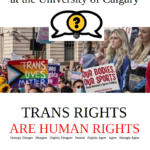
Hello,
this is Jonathan Lainey, quoted above in your paper.
The origins of Annett’s “fake news” is explained in my chapter:
“Telling the Stories of Objects in Museum Collections. Some Thoughts and Approaches” (p. 302-305), published in The Routledge Companion to Indigenous Art Histories in the United States and Canada, Edited By Heather Igloliorte, Carla Taunton. (2022)